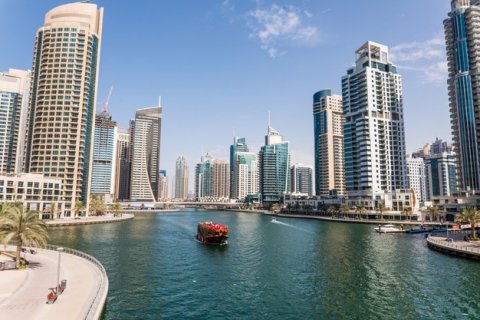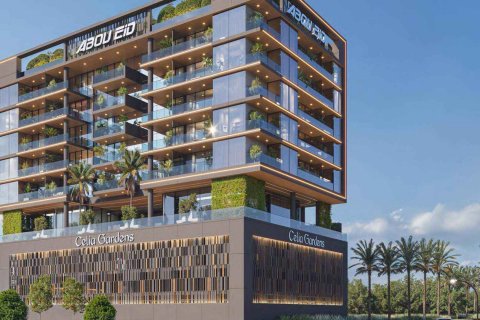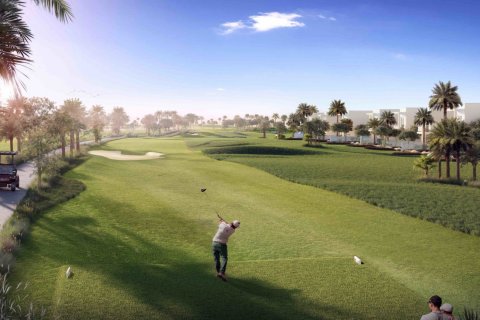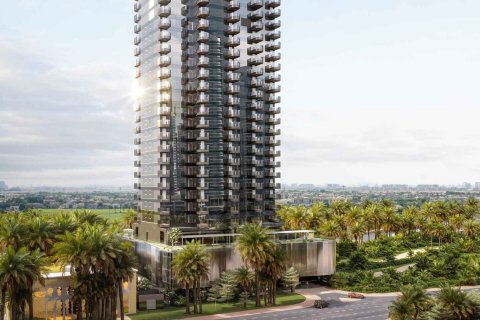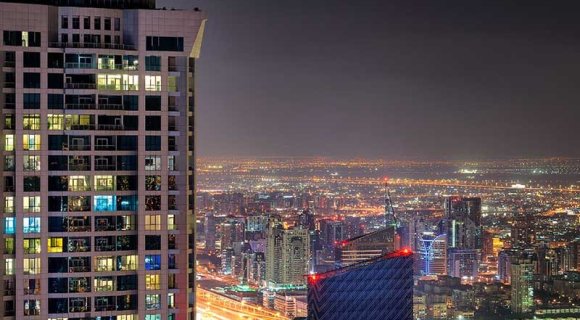
Dubai and Abu Dhabi are major cities in the United Arab Emirates and are the primary economic and tourism centers in the Middle East. Their real estate markets have several differences, although both are popular among international investors and expatriates looking to move to the UAE permanently.
Content:
Structure of Markets in Dubai and Abu Dhabi
In Dubai, you will find many types of residential and commercial properties, from towering skyscrapers with panoramic apartments to exclusive coastal villas and luxurious shopping centers. The Emirate strives to become a leading international business and financial center. Its construction sector began to develop earlier than in Abu Dhabi and offers a wide range of options for investors and end-users. Today, the Emirate leads the region in construction volumes. In 2022 alone, 31,000 residential units were commissioned here.
The real estate market of Abu Dhabi, the capital of the UAE, can be called more conservative. Today it focuses on offering luxury housing and high-class commercial properties. The Emirate began to attract foreign investors later than neighboring Dubai. The city offers a wide choice of premium-class villas, residences, and apartments. Many areas are now undergoing active development. Locations such as Saadiyat Island and Yas Island are particularly prestigious and promising. Here you can find residential complexes in Abu Dhabi offering unique options for long-term investors. The Abu Dhabi government plans to transform these islands into some of the most luxurious places to live in the world. The Emirate's leadership is also developing other young areas, such as Al Reem Island, to meet the growing demand for housing and expand the construction fund. By the end of 2022, the Emirate's Department of Municipalities and Transport (DMT) had registered 18 new projects, which will build 5,037 houses. Of these projects, 10 involve the construction of villas, 5 involve multi-storey residential and commercial buildings, and 3 projects will have mixed-use estate. Since the launch of the DARI information platform at the DMT department in February 2022 and until the end of the same year, 178 real estate projects were launched in the Emirate. The purpose of the platform is to provide potential buyers with the most comprehensive and transparent information about construction projects.
One of the factors that make the real estate market in Dubai and Abu Dhabi attractive to investors is the presence of special free trade and investment zones, such as Dubai International Financial Centre and Abu Dhabi Global Market. These zones offer special rules and benefits for entrepreneurs, including foreign citizens.
Real Estate Prices and Returns
Prices for real estate in Dubai and Abu Dhabi can vary significantly due to factors such as location, property type, size, quality, and demand. Historically, Dubai had higher real estate prices compared to Abu Dhabi, explained by its status as an international tourist and commercial center and high housing demand. This trend remains relevant today. In 2022, the price of apartments in Dubai increased by 9.6%, and the cost per square meter of residential area on average in the Emirate approached $3,175. During the same period, housing prices in Abu Dhabi increased by 1.5%, with the cost per square meter amounting to $2,969.
The return on investment in Dubai and Abu Dhabi real estate also depends on several factors: the specific quarter where the building is located, the type of housing, proximity to various infrastructure facilities, and trends. The ROI level in Dubai typically ranges from 5.6% to 9.2% depending on the city area, while in Abu Dhabi, this figure does not exceed 8%. On the other hand, noticeably lower housing prices in the UAE capital today give more room for growth, which in perspective may allow investors to resell housing purchased today at a significant profit.
Types of Ownership
In Dubai, foreign citizens can buy real estate in certain areas called Freehold and Leasehold. In the first case, the owner has full rights to the property and the land on which it is located. This means that the owner can own, use, sell, rent, or inherit their property without any restrictions. Freehold property owners have the right to receive a UAE residence visa and conduct business. With Leasehold rights, the owner can use the property for a specific term set in the lease agreement and must meet a number of conditions. The lease term is usually 99 years but can vary. The Leasehold owner can rent or sell the residential object during the term of the contract, but after the lease term expires, the rights return to the landowner or the original holder.
The situation in Abu Dhabi is slightly different — foreigners can purchase property based on the Musataha programme, which grants them the right to own and use land for up to 50 years. Currently, the capital's government is introducing a prospective law on expanding available locations for selling real estate objects to foreign clients, and developers will now be able to own land in various forms of ownership.
Differences in Obtaining Residency
Residency for investments in Dubai and Abu Dhabi can be obtained in exchange for specific investments in the construction sector. The difference is that in Dubai you can get a visa for 2, 5, and 10 years with the right to extend it, while in Abu Dhabi only a 5-year visa is available.
- A 2-year residence visa is issued with investment size from AED 750,000 ($205,000) and is available even if the housing is bought on a mortgage or installment. The main thing is that more than 50% of the debt is paid. At the same time, the owner receives an Emirates ID instead of a mark in the passport.
- A 5-year "green visa." The amount of investment increases to AED 2 million ($545,000), and the living space must be bought with your own money. This is the only type of visa that can be obtained in Abu Dhabi.
- A "golden visa" for 10 years is issued when investing more than AED 2 million ($545,000).
Overall, Dubai and Abu Dhabi are two key players in the UAE market; they have their unique features. Dubai offers a large selection of housing and remains popular for tourists and investors. Abu Dhabi is oriented towards offering premium housing and is characterized by stability. Both markets remain attractive to investors, and the development of these cities continues to attract financing and strengthen their positions as key centers of business activity in the Middle East.













































